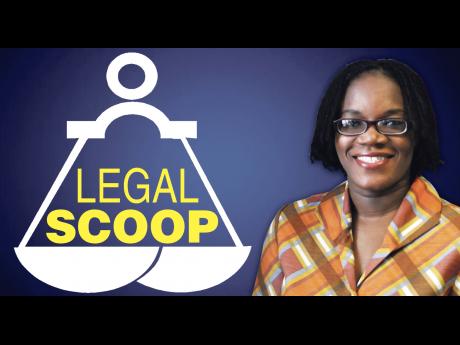BOOTING THE QUEEN - Michael Manley would roll in his grave if the PNP does not back this move
So the governor general, in the latest edition of the Throne Speech, has announced the intention of this administration to have the queen removed as Head of State within the legislative year.
Andrew Holness has often described himself as a "nationalist", and while his behaviour last year on the question of abandoning the Privy Council as Jamaica's Final Court of Appeal was anything but nationalistic, it is welcoming to see him now advocating for the removal of the queen as Head of State, a move that I fully support.
The removal of the queen as Head of State, and her representative in Jamaica, the governor general, will require amendments to the Constitution of Jamaica, particularly to Section 68, which vests the executive authority of Jamaica in Her Majesty.
However, Section 68, subsection 1, is what is described as a "deeply entrenched provision" and, as such, will require the adoption of a rather rigorous route for its amendment.
Amendment to the Constitution
Section 49 of the Constitution is the section that outlines the route the Government would have to pursue to amend Section 68, subsection 1. I have summarised the requirements below:
1. The relevant amendments (bills) would have to be tabled in the Lower House (or House of Representatives).
2. The debate on the bills would then follow; however, three months must first elapse after tabling, before the debate can take place.
3. The debate having taken place, the next step in the process would be the voting on the bills. Here again, however, three months must first elapse after the debate, before the vote can be taken. A total of at least six months would, therefore, have to elapse between the tabling of the bills in the Lower House and the vote being taken, not accounting for a delayed, adjourned or extended debating period (all very likely outcomes, given the importance of the proposal).
Two-thirds majority
To succeed in the vote in the Lower House, the Government will require a two-thirds majority vote.
This must be a daunting prospect as a two-thirds majority vote in the Lower House means that the Government with only 32 seats, in a 63-seat Lower House, would require bipartisan support to secure the necessary 42-vote majority.
I am, however, confident that this JLP administration will be able to obtain the support of the PNP Opposition for the bills to pass, notwithstanding having withheld its own support in both Houses last year when the then government sought to pass the bills to replace the Privy Council.
I am also fully persuaded that pigs can, and do, fly around and around in fancy, fluffy, pink tutus.
Senate
Unlike in the Lower House, in the Upper House (or Senate), there is no minimum time period that must expire between tabling, debating and voting.
However, as in the Lower House, a two-thirds vote must also be obtained in the Upper House for the bills to be passed. With an Upper House consisting of 21 members, 13 on the Government side and eight on the opposition side, this means that at the appointed time, the Government will require at least one member of the Opposition to vote with it, for the bills to be passed in that House.
Having been passed in the Senate, the bills will then have to go to a referendum for the approval of the masses. At such a referendum, a simple majority of the votes cast will seal the deal.
If the more likely outcome materialises, however, and the Government is unable to obtain bipartisan support the first time the bills go before the Senate, the Constitution provides that the bills can be brought back to the Senate a second time.
There are, however, strict timelines that must be observed for the Government to avail itself of a second 'shot' in the Senate.
If the Senate rejects the bills a second time, that is still not necessarily the end of the matter, as the Constitution provides that in such a scenario, the Government may instead obtain approval from the electorate via a referendum.
A referendum called in these circumstances will require a two-thirds, and not a simple majority vote (as would obtain where there is a successful vote in the Senate) for the bills to become law.
Given the socialist, historical foundation of the PNP, I think its former president, Michael Manley, would turn in his grave if the PNP were to vote against the proposed amendments to replace the queen.
However, since a referendum will be required in any event for the queen to be replaced, and since the JLP's only issue with replacing the Privy Council was that it was not put to the people, then it would not be unreasonable for the PNP to request that as a condition of its support, both the removal of the Privy Council and the removal of the queen be put to the electorate at the one referendum.
This would by a win-win for both sides.
- Shena Stubbs is an attorney-at-law and legal commentator. Send feedback to: Email: shena.stubbs@gleanerjm.com, Twitter:@shenastubbs


